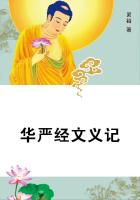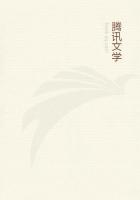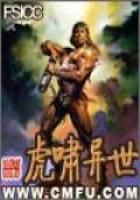Lincoln constantly endeavored to bring the moral and philosophical side of the subject to the foreground. "Slavery is wrong" was the keynote of all his speeches. To Douglas's glittering sophism that the right of the people of a Territory to have slavery or not, as they might desire, was in accordance with the principle of true popular sovereignty, he made the pointed answer: "Then true popular sovereignty, according to Senator Douglas, means that, when one man makes another man his slave, no third man shall be allowed to object." To Douglas's argument that the principle which demanded that the people of a Territory should be permitted to choose whether they would have slavery or not "originated when God made man, and placed good and evil before him, allowing him to choose upon his own responsibility,"
Lincoln solemnly replied: "No; God--did not place good and evil before man, telling him to make his choice. On the contrary, God did tell him there was one tree of the fruit of which he should not eat, upon pain of death." He did not, however, place himself on the most advanced ground taken by the radical anti-slavery men. He admitted that, under the Constitution, "the Southern people were entitled to a Congressional fugitive slave law," although he did not approve the fugitive slave law then existing.
He declared also that, if slavery were kept out of the Territories during their territorial existence, as it should be, and if then the people of any Territory, having a fair chance and a clear field, should do such an extraordinary thing as to adopt a slave constitution, uninfluenced by the actual presence of the institution among them, he saw no alternative but to admit such a Territory into the Union. He declared further that, while he should be exceedingly glad to see slavery abolished in the District of Columbia, he would, as a member of Congress, with his present views, not endeavor to bring on that abolition except on condition that emancipation be gradual, that it be approved by the decision of a majority of voters in the District, and that compensation be made to unwilling owners. On every available occasion, he pronounced himself in favor of the deportation and colonization of the blacks, of course with their consent. He repeatedly disavowed any wish on his part to have social and political equality established between whites and blacks. On this point he summed up his views in a reply to Douglas's assertion that the Declaration of Independence, in speaking of all men as being created equal, did not include the negroes, saying: " I do not understand the Declaration of Independence to mean that all men were created equal in all respects. They are not equal in color. But I believe that it does mean to declare that all men are equal in some respects; they are equal in their right to life, liberty, and the pursuit of happiness."
With regard to some of these subjects Lincoln modified his position at a later period, and it has been suggested that he would have professed more advanced principles in his debates with Douglas, had he not feared thereby to lose votes. This view can hardly be sustained. Lincoln had the courage of his opinions, but he was not a radical. The man who risked his election by delivering, against the urgent protest of his friends, the speech about "the house divided against itself" would not have shrunk from the expression of more extreme views, had he really entertained them. It is only fair to assume that he said what at the time he really thought, and that if, subsequently, his opinions changed, it was owing to new conceptions of good policy and of duty brought forth by an entirely new set of circumstances and exigencies. It is characteristic that he continued to adhere to the impracticable colonization plan even after the Emancipation Proclamation had already been issued.
But in this contest Lincoln proved himself not only a debater, but also a political strategist of the first order. The "kind, amiable, and intelligent gentleman," as Douglas had been pleased to call him, was by no means as harmless as a dove. He possessed an uncommon share of that worldly shrewdness which not seldom goes with genuine simplicity of character; and the political experience gathered in the Legislature and in Congress, and in many election campaigns, added to his keen intuitions, had made him as far-sighted a judge of the probable effects of a public man's sayings or doings upon the popular mind, and as accurate a calculator in estimating political chances and forecasting results, as could be found among the party managers in Illinois.
And now he perceived keenly the ugly dilemma in which Douglas found himself, between the Dred Scott decision, which declared the right to hold slaves to exist in the Territories by virtue of the Federal Constitution, and his "great principle of popular sovereignty," according to which the people of a Territory, if they saw fit, were to have the right to exclude slavery therefrom. Douglas was twisting and squirming to the best of his ability to avoid the admission that the two were incompatible.
The question then presented itself if it would be good policy for Lincoln to force Douglas to a clear expression of his opinion as to whether, the Dred Scott decision notwithstanding, "the people of a Territory could in any lawful way exclude slavery from its limits prior to the formation of a State constitution." Lincoln foresaw and predicted what Douglas would answer: that slavery could not exist in a Territory unless the people desired it and gave it protection by territorial legislation. In an improvised caucus the policy of pressing the interrogatory on Douglas was discussed. Lincoln's friends unanimously advised against it, because the answer foreseen would sufficiently commend Douglas to the people of Illinois to insure his re-election to the Senate.















